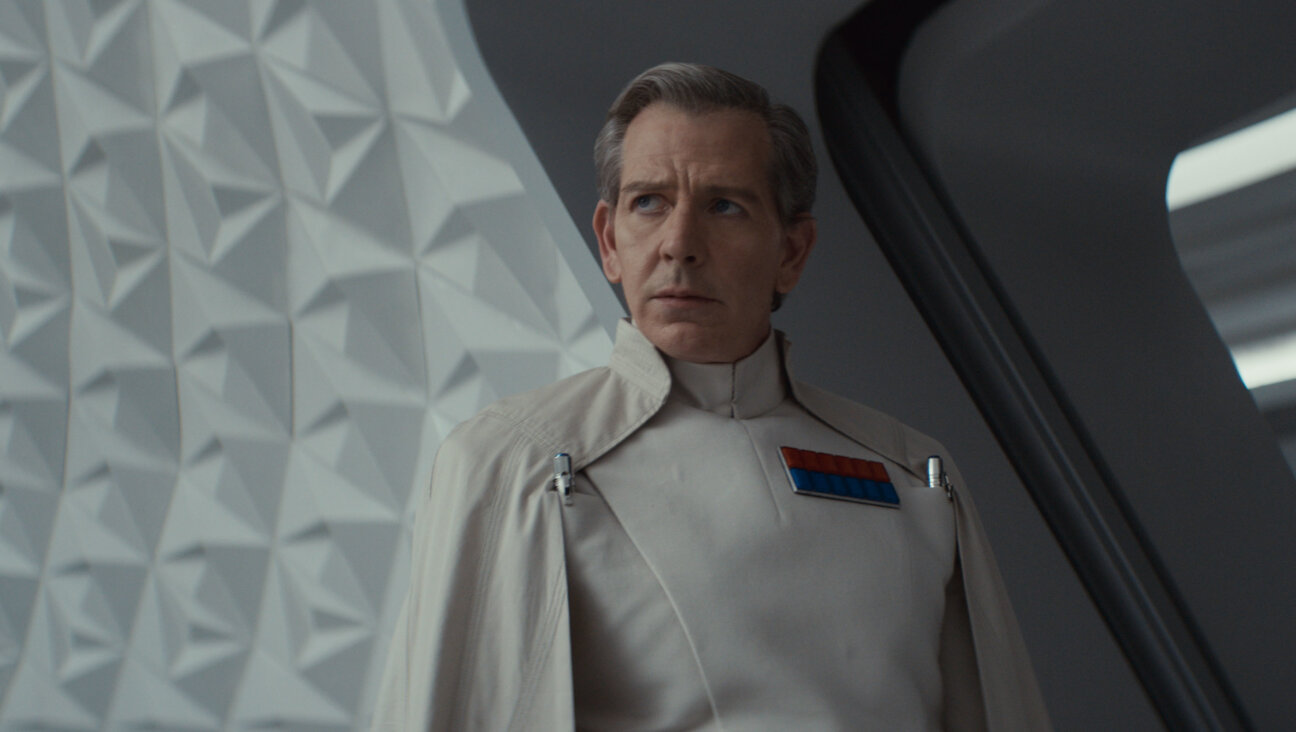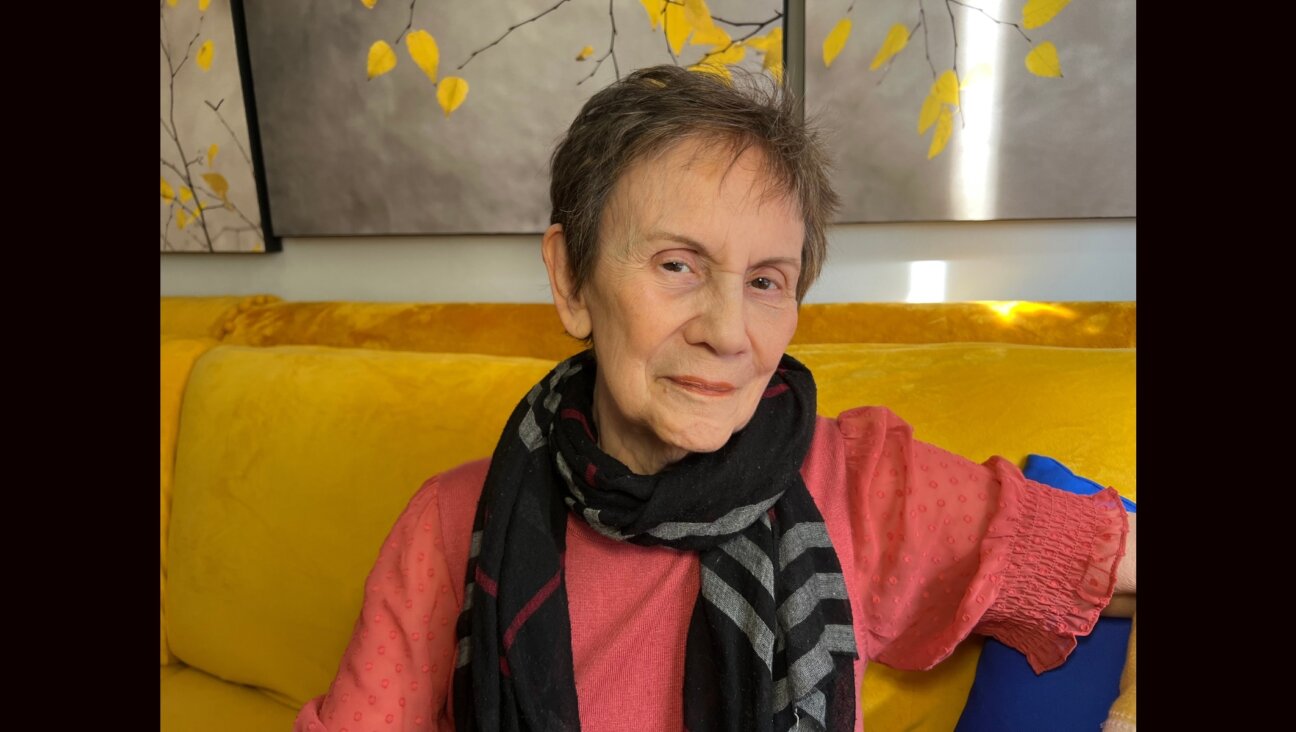Finding an Excuse To Celebrate Copland
No excuse is necessary to stage a concert of Aaron Copland’s works — over the last 60 years, his name has become synonymous with American classical music — but Brooklyn, N.Y.’s Kane Street Synagogue found one anyway. On November 14, it staged a tribute to the composer to coincide with the 91st anniversary of Copland’s bar mitzvah, bringing him back to the synagogue where he was first called to the Torah. From here, inside Brooklyn’s oldest synagogue, Copland embarked on a career that would take him from his Jewish roots to the pinnacle of American music.
Although the Cobble Hill neighborhood has changed, Copland still would recognize the synagogue, with its vaulted ceilings and stained-glass windows. Two hundred people filled the sanctuary and took their seats in the pews in which Copland and his family once sat. The Coplands attended synagogue regularly, and Harris Copland, Aaron’s father, even helped purchase the building in 1906 before serving as its president from 1907 to 1910. While the synagogue provided a communal and spiritual center for the Copland family, it became a musical focal point for young Aaron.
“Copland would have responded to the liturgical music the way any budding musical genius would — as fertile ground for his imagination,” said Michael Boriskin, artistic and executive director of Copland House and the pianist at last month’s concert. Copland himself wrote that he always remembered the dance songs played at Jewish celebrations and the religious chanting of his youth.
Many of Copland’s earliest works experimented with Jewish themes. These include “My Heart Is in the East,” from 1918, based on a medieval Hebrew poem; “A Lament,” from 1919, which used a traditional melody to “Adon Olam,” and “Four Motets,” from 1921. These works bear the influence of pre-World War II German composer Ernest Bloch, to the extent that Howard Pollack, author of “Aaron Copland: The Life and Work of an Uncommon Man,” believes that Copland even might have been emulating Bloch. This is true of Copland’s music, but more importantly, Copland used Bloch as a model of what a Jewish composer should be.
When Copland was 20, he went to France for what was supposed to be one year of study but turned into three. Copland listened to everything he could and met composers across the continent. He discovered Jewish composers who gave less reference to Judaism in their work than Bloch did — composers such as Darius Milhaud, whom he cited as “proof that a composer can remain profoundly national and at the same time profoundly Jewish.” His influences expanded, coming to include the non-Jewish composer Stravinsky, American popular music and jazz. Two of the pieces performed by Music From Copland House at the concert, “Nocturne” and “Ukulele Serenade,” reflect these changes. (With their upbeat and jazzy sound, they were the audience’s favorites.)
Copland’s music reveals a fundamental shift over time, away from obvious Jewish references to a more cosmopolitan sound. Yet even as Copland was discovering his mature voice, he returned to his roots in 1929 to write a composition that would be Jewish in both subject matter and musical source: “Vitebsk.” Copland wrote that he wanted “to reflect the harshness and drama of Jewish life in White Russia,” and in it he struggled to re-create the distant world of his grandparents.
“Vitebsk” borrows from a Hasidic nigun called “Mipnei Mah,” but the melody is almost unrecognizable. For those in the audience expecting to hear the familiar sound of Copland’s famous pieces, the dark, chaotic and dissonant “Vitebsk” came as something of a surprise — after it finished, one woman simply whispered, “I didn’t like that” — but for many, it was a revelation. They heard a different side of Copland, as if he were struggling with the darkness and claustrophobia of the past before he could engage the openness and optimism of the future.
After “Vitebsk,” never again would Copland borrow a Hebrew folk melody or a Judaic theme for one of his works. Even “In the Beginning,” which uses the first 38 verses of Genesis as its libretto, is not obviously Jewish. In 1947, he was asked by A. Tillman Merritt to compose a choral work with Hebrew lyrics for Harvard’s symposium on music criticism, but he used the text from the King James Bible instead.
Yet Cantor JoAnn Rice, the director of the Florilegium Chamber Choir, which performed the work at the concert, noted the similarities between the repetition of the verse “And the evening and the morning were the… day” in Copland’s piece and the same text in Hebrew in the Torah service. Sitting in the Kane Street Synagogue, it was impossible to listen to these verses and not recall “Vayehi Erev, Vayehi Boker.” These Jewish influences would crop up in other Copland works, as well. In his book, Pollack cites other examples, such as Copland’s Piano Concerto, which “suggests the calls of the shofar,” and his “Dance Panels,” which recalls the melody to “Lecha Dodi.”
The concert closed with Copland’s Sextet from 1933. Written four years after “Vitebsk,” the piece is miles away in its sound. Copland had found his voice and succeeded in composing what is now recognized as great “American music.” Yet his career also epitomized the American Jewish experience. From his Jewish Brooklyn childhood, Copland ascended the heights of the classical music world by creating his music in his own image. As the audience exited the Kane Street Synagogue, one listener summed it up: “Everything was so varied, but it all sounded like Copland.”
Benjamin Levisohn is a freelance writer and stock trader in New York.
The Forward is free to read, but it isn’t free to produce

I hope you appreciated this article. Before you go, I’d like to ask you to please support the Forward.
Now more than ever, American Jews need independent news they can trust, with reporting driven by truth, not ideology. We serve you, not any ideological agenda.
At a time when other newsrooms are closing or cutting back, the Forward has removed its paywall and invested additional resources to report on the ground from Israel and around the U.S. on the impact of the war, rising antisemitism and polarized discourse.
This is a great time to support independent Jewish journalism you rely on. Make a gift today!
— Rachel Fishman Feddersen, Publisher and CEO
Support our mission to tell the Jewish story fully and fairly.
Most Popular
- 1

Opinion The dangerous Nazi legend behind Trump’s ruthless grab for power
- 2

Opinion I first met Netanyahu in 1988. Here’s how he became the most destructive leader in Israel’s history.
- 3
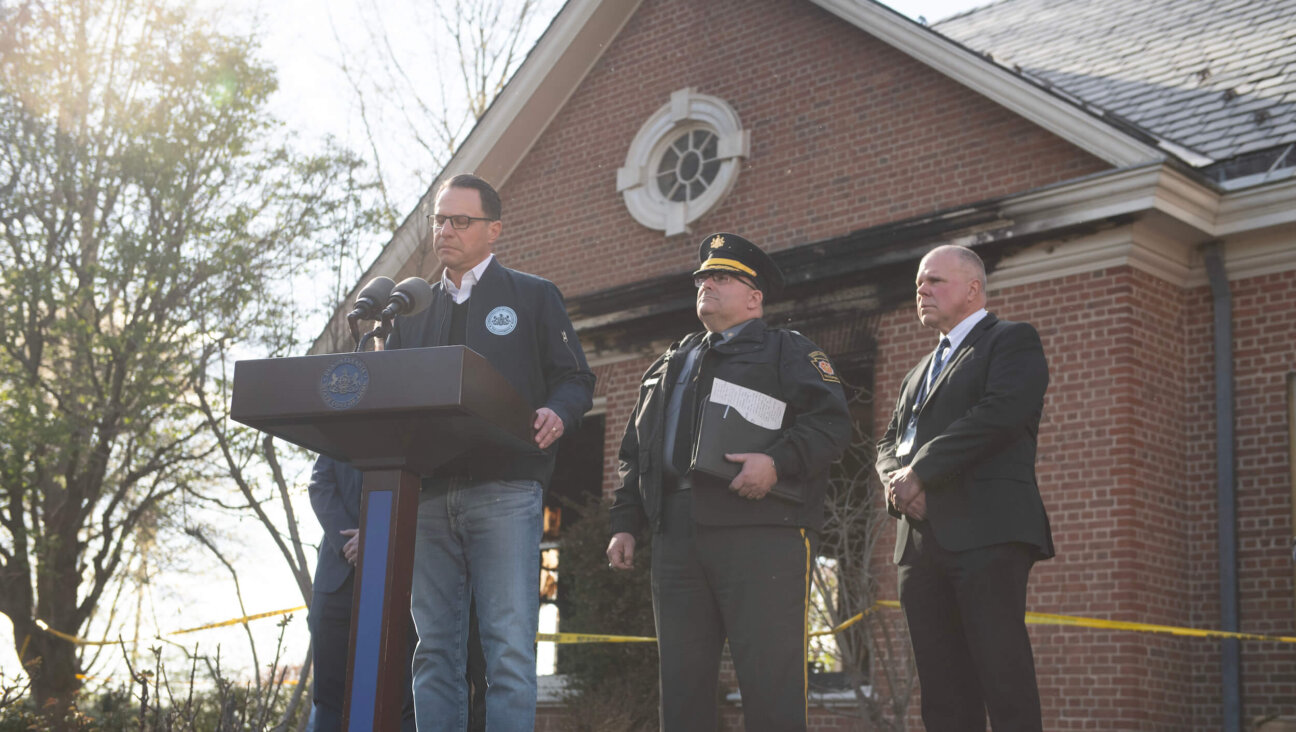
Opinion Yes, the attack on Gov. Shapiro was antisemitic. Here’s what the left should learn from it
- 4

News Who is Alan Garber, the Jewish Harvard president who stood up to Trump over antisemitism?
In Case You Missed It
-
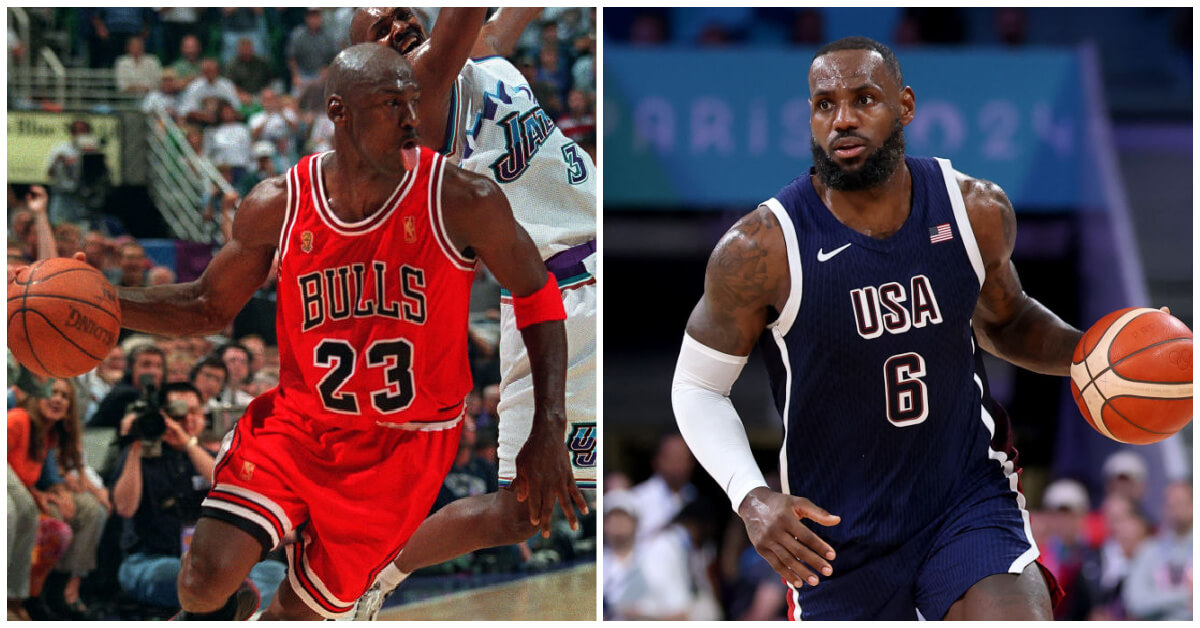
Culture Einstein or Edison? Jordan or LeBron? A rabbi explains why Jews debate who is greatest
-

Opinion A Holocaust perpetrator was just celebrated on U.S. soil. I think I know why no one objected
-
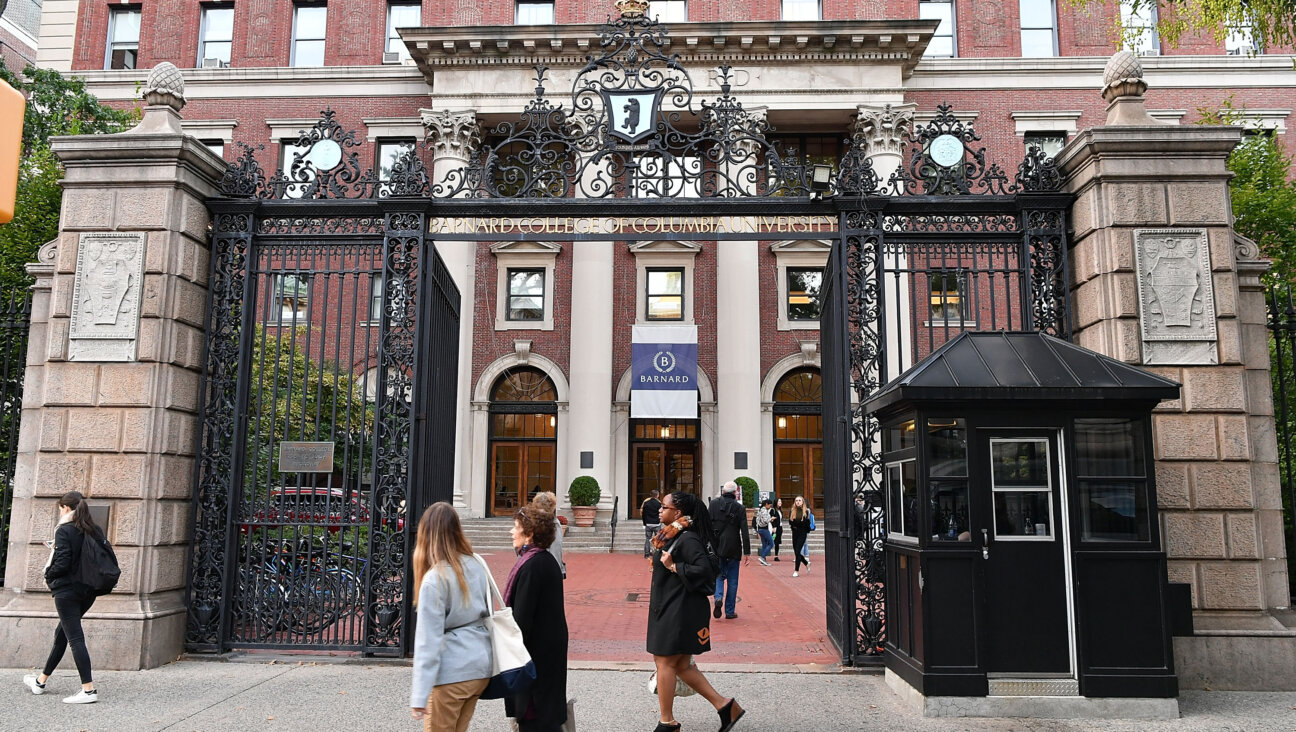
Fast Forward Columbia staff receive texts asking if they’re Jewish, as government hunts antisemitic harassment on campus
-
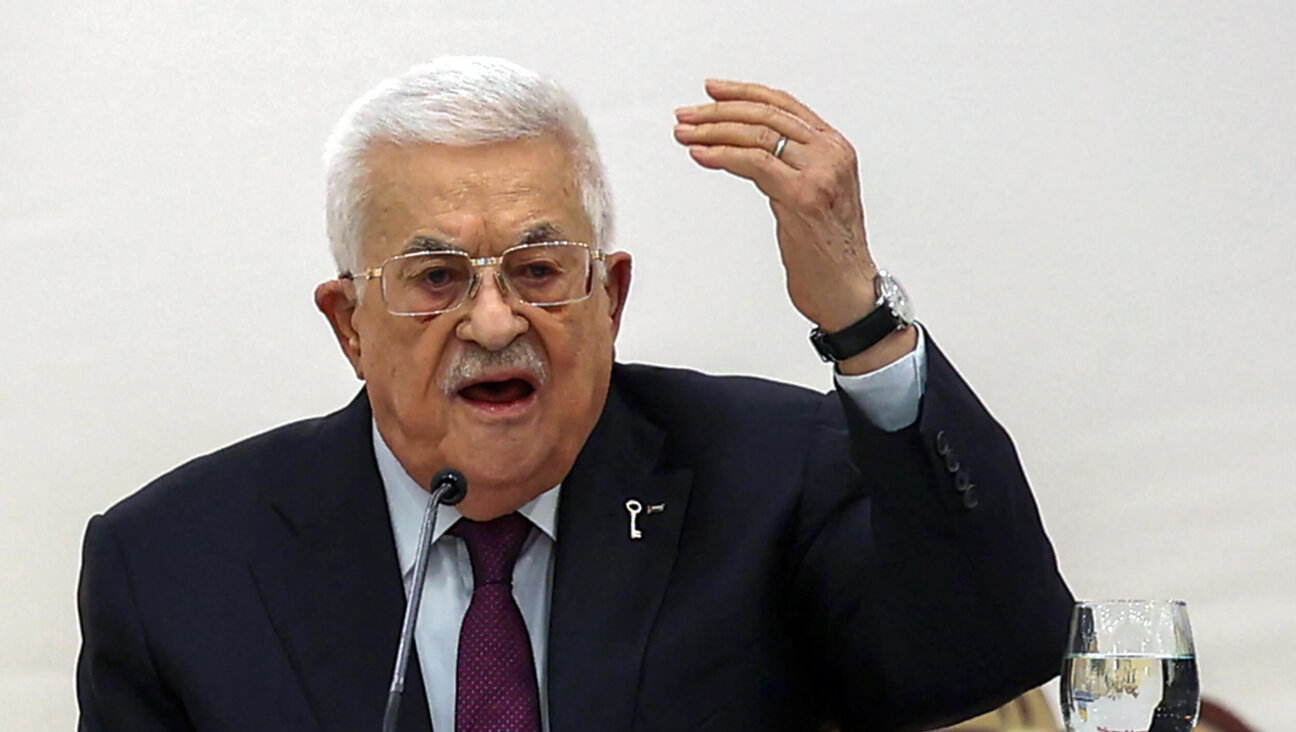
Opinion A Palestinian leader just gave Trump an unprecedented opening to pursue peace
-
Shop the Forward Store
100% of profits support our journalism
Republish This Story
Please read before republishing
We’re happy to make this story available to republish for free, unless it originated with JTA, Haaretz or another publication (as indicated on the article) and as long as you follow our guidelines.
You must comply with the following:
- Credit the Forward
- Retain our pixel
- Preserve our canonical link in Google search
- Add a noindex tag in Google search
See our full guidelines for more information, and this guide for detail about canonical URLs.
To republish, copy the HTML by clicking on the yellow button to the right; it includes our tracking pixel, all paragraph styles and hyperlinks, the author byline and credit to the Forward. It does not include images; to avoid copyright violations, you must add them manually, following our guidelines. Please email us at [email protected], subject line “republish,” with any questions or to let us know what stories you’re picking up.







